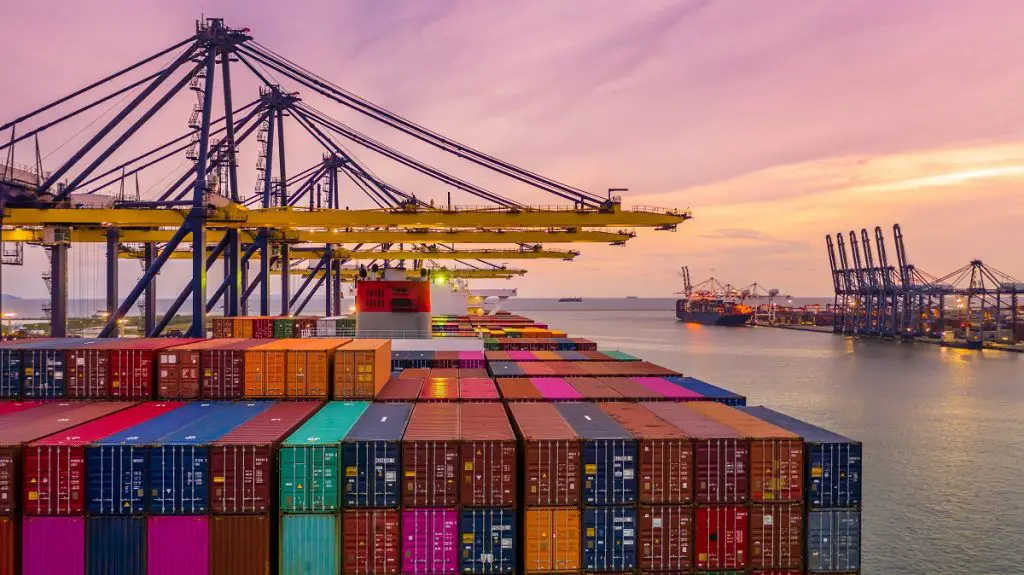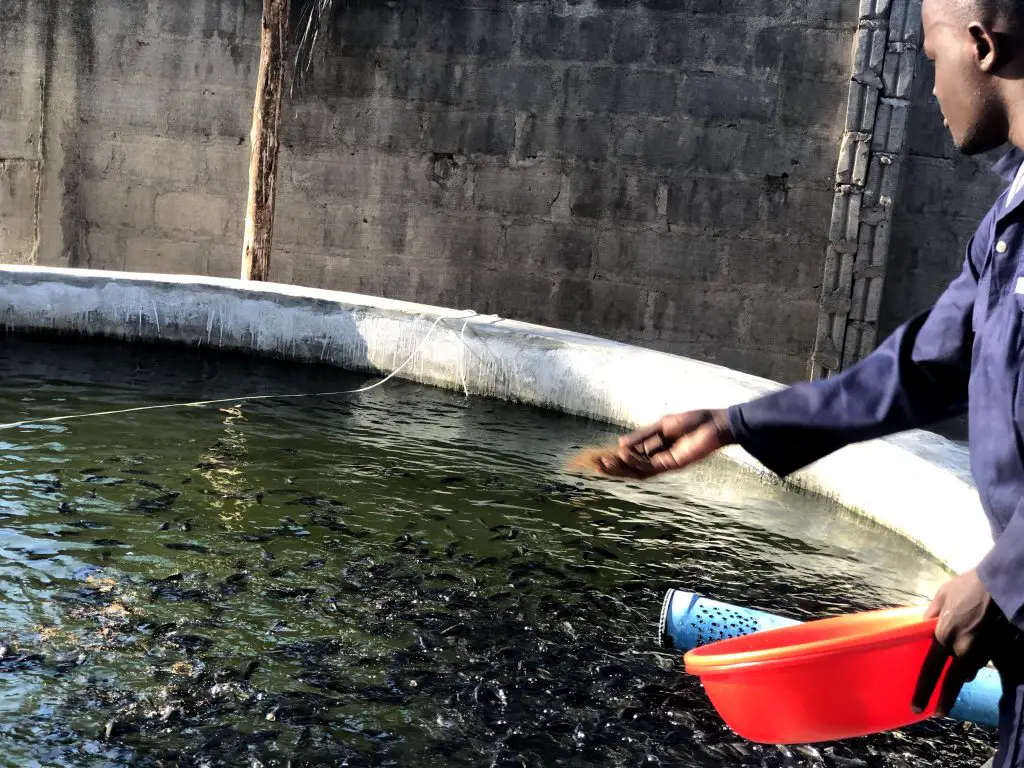- Pullman Hotel Nairobi: French hospitality firm Accor to Open 1st Premium Brand in Kenya
- Investors tip Abu Dhabi as the next tech powerhouse globally
- Unlocking global investment: insights from the ministerial roundtable at AIM Congress 2024
- UN Tourism empowers women entrepreneurs at AIM 2024
- Kenya’s business conditions stabilised in April but heavy rains a concern for Q2
- Floods Sweep Away Billions in Economic Gains in Kenya and Tanzania
- Chapa Founder’s insight: Africa’s startup evolution mirrors China’s growth trajectory
- Sustainable solutions: AIM Congress 2024 focuses on agriculture, health and investment
Month: July 2020
The entire African railway network is estimated at about 75,000 km going by current AU data…
In this column called “The Indicator,” we will be taking an economic or financial statistic from East Africa and breaking it down into bite-sized nuggets of knowledge for investors.
This month’s indicator figure is 597,028,294
597,028,294 what?
597,028,294 US dollars is the projected cumulative annual cost of cyber security attacks across East African Community (EAC) countries for 2020 as extrapolated from a 2017 study “Demystifying Africa’s Cyber Security Line”.
What is a cyber security attack?
A cyber security attack often called a “hack” is when a nefarious individual or group uses a computer to invade the computer or the computing network of a person or company.
Cyber attacks can come from external attackers such as cybercriminals seeking to steal money, damage the reputation, or block access to computing resources in order to extort ransom money from a company. Cyber attacks can also come from “insiders” — frustrated current or former …
Coronavirus has brought enormous setbacks, suffering, and forecasts of a global depression ahead following the closure of so many economies for so long. However, if there has been one area where it has exposed our global fragility, that area has been food.
Certainly, the curfews, lockdowns and workplace closures delivered an uptick in power cuts, but there is no great clamour about our energy infrastructure now being under threat of failure. Likewise, with water, it remains far from accessible to all, but it has not been plundered by this year’s pandemic. Shelter could take a hit on joblessness and unpaid rents. But the elephant in the room is definitely food.
That fact has not gone unremarked. At the level of international geopolitics, the World Food Programme (WFP) has warned us all that we are moving into a famine of what it has called ‘biblical’ proportions, by which, it is …
The East African region is transforming with multibillion dollar projects planned or already underway in the different sectors of their economies. …
Bearish sentiment protracts continues being the dominant theme in the Kenyan equities markets as uncertainty clouds economic and business recovery from the effects of the ongoing global Covid-19 pandemic. On a year-to-date (YTD) basis, the Nairobi Securities Exchange 20-Share Index (NSE-20) and Nairobi Securities Exchange All Share Index (NASI) have posted negative returns of 24.2% and 14.1%, respectively. Notable out-performers YTD are Barclays ETF Gold (+22.1%), a security whose value is pegged on the value of gold (a safe haven asset); Kenya Airways (+39.5%) on a recent price rally; and Carbacid Investments (+12.0%). On month-to-date basis (MTD), there have been outstanding outperformers (Flame Tree Group 56.4%, Britam +47.3% and Kenya Power +30.9%). The key index counters, in particular in the banking sector, have retreated sharply, with Equity Group and KCB Group down 34.9% and 35.2% YTD, respectively.
Also Read: Africa’s four MEGA TRENDS that are overcoming the global pandemic
The …
As countries across the globe start to lift lock-downs and relax restrictions, there is the natural human impulse to do something to celebrate freedom, survival, hope and a future. Be careful!! As wealth managers many of our clients have asked us how best they can stay safe financially as the world threatens to return to a new normal…..
Firstly, my own opinion is that medically things are going to get a whole lot worse before they get better. Government management of the pandemic has been very, very poor nearly everywhere and I expect a large second wave of infections in UK, US and across much of Europe. In Uganda we are only now seeing the first spike and there may be more restrictions ahead. We are certainly NOT home and dry in terms of the pandemic itself.
Also Read: Coronavirus update: E. Africa postpones Heads of State meeting
What …
Governments in the East African region have placed their bets in investing in infrastructure in a bid to increase their competitiveness and reach their full potential. In the last two decades the region has invested heavily in infrastructure including broader connectivity, electricity connection, and airport expansion among other mega projects.
One of the major investment partners in these projects is the African Development Bank (AfDB). The AfDB has poured in billions of dollars in the form of grants and loans as it seeks to help establish the robust infrastructure needed to realise the region’s economic promise.
Over the years, the AfDB has intervened to support the region’s development efforts. As of 2012, total approved national and regional operations amounted to nearly $16.21 billion.
The Bank’s interventions have consisted of a mix of investment projects, capacity-building, and technical …
90 per cent of the global population without access to electricity will be concentrated in the SSA…
Tanzania is blessed with plenty of water bodies, from the vital Ruvu, and the Indian Ocean to the great lakes—Tanganyika and Victoria. These rich water-bodies have also served the nation of more than 55 million a rich blend of aquatic organisms for dietary and business needs.
Aquaculture is taking new ground in Tanzania, and more young people are taking an interest in it. Aqua-Farms Organization (AFO), a local fishery NGO based in Dar es Salaam, is one of the platforms utilizing aquatic resources for possible business and professional opportunities.
As the window of job opportunities gets slimmer, organizations such as AFO with a human capital of more than 20 youth, provide a decent and interesting line of a career that caters for multiple demands across communities, economic and health factors being the top priorities.
READ:Tanzania set to import fishing gears after change of heart
The fisheries
…The post-Covid-19 era will not be good for the economy, especially the insurance sector. The economy has taken a beating and premiums are not being paid leading to lapsing of policies. Cars are not being imported therefore motor insurance premiums are being lost. Premiums from travel insurance are not being realized because airlines have been grounded…the situation can only get worse.
Moreover, coupled with that are the moribund laws being enacted in the insurance sector deliberately crippling insurance intermediaries. The recent passing of the Tax Laws (Amendment) Act 2020 ostensibly to take care of the small man was anything but. Value Added Tax (VAT) was introduced to insurance intermediaries leading to them being the most taxed group in Kenya seeing that they are paying withholding tax and income tax at the same time.
No one bothers to find out the stakeholders’ views on these laws and the regulator needs to …








